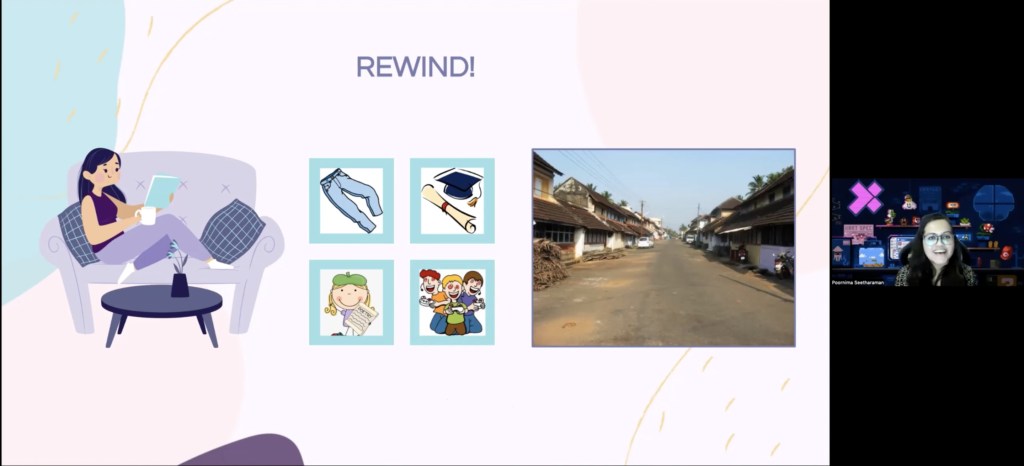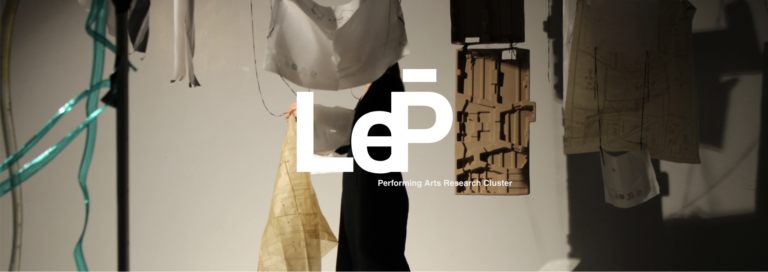Poornima Seetharaman’s career has unfolded like a game of toppling dominoes. During her guest talk for Technoculture, Art and Games (TAG)’s Rethinking Playfulness Series, the game designer and founder of Women in Games India recounted the serendipitous events that shaped her life, from a pair of jeans to the support of fellow gamers. For Seetharaman, life works through a ripple effect: small and seemingly meaningless actions can trigger a series of events that define our futures. While we may not be able to individually control this complex system of causation, Seetharaman suggested there is one thing we can do: trigger a positive chain of events in someone else’s life. We can add something good to the journey of someone traversing similar paths. After sixteen years in gaming, Seetharaman is now trying to become a supporter and role model for other women who are entering the industry.

Seetharaman got into gaming almost by accident when she found a job in a game development company without knowing much about the field, but once she was exposed to Dungeons & Dragons, she fell in love with game design. From that moment on, Seetharaman’s journey turned into a rollercoaster, as she navigated a nascent field dominated by men. But there were four fundamental life experiences – or domino pieces – that gave her the confidence to pursue her passion for game design. Seetharaman recounted growing up in an orthodox town where wearing jeans was very uncommon for women, but when her dad bought her a pair in the city, she became one of the first girls in otown to wear jeans. This experience taught her the value of courage and of being that person who takes the first step, even when others are not doing it. Similarly, when her mother decided to go to school in her 50s, Seetharaman realized that she could do anything she wanted regardless of age. When she was a young student in school, Seetharaman also learned that the beauty of art lies in its ambiguity, after reading a poem in class and realizing that her interpretation was completely different from the one in the textbook. Her teacher told her that art is always open-ended and up to the viewer, a piece of wisdom that would later inform her approach to game design. The last experience that shaped Seetharaman was Age of Empires, or, more precisely, the friends that introduced her to the game, because they never made her feel like she was a “female gamer.” She was just an equal competitor to them, someone they wanted to beat in the game, which gave her the confidence she needed at the time.

Throughout her career, Poornima Seetharaman has worked on iconic mobile games like BioShock and FarmVille, started her own game design consultancy company focused on edutainment, founded a game development studio that made games for gender sensitivity, and is currently the Director of Design at Zynga. In 2020, she was inducted into the Hall of Fame at the Global WIG Awards, making her the first Indian game developer to receive the honour, an impressive achievement in such a male-dominated field was a woman. But Seetharaman also emphasized that her gender identity does not define her. “Being a woman in gaming is the same as any other person,” she said. “We are behind our desk every day doing our work.” Instead of thinking of gender in tokenizing terms or through a framework of equality, she suggests we talk about equity. “At some point, we have to step in and provide equity,” she said, “to make sure there is the right kind of mentorship and training.” There aren’t enough women coming into the industry, which in turn means there are not enough women in leadership positions, and young women are deterred from getting into gaming because they don’t see any legibility or role models. Seetharaman is trying to stop this cycle by holding events where women can get together, share their experiences and support each other. However, she also had advice for women, especially those who are leaders in their industry: take others up with you. “Maybe the journey is slower,” she said, “but when you get there, the top will be less lonely.”

In line with TAG’s mission of “rethinking playfulness,” Poornima Seetharaman’s talk was a reminder that there are still many inequities in our access to playfulness. If women and gender non-conforming people are not appropriately represented in the industries that produce leisure activities – like games and media – we will inevitably end up with products that don’t speak to everyone’s experience. The production of games ought to be democratized and it should represent the diverse voices of the world. Otherwise, we will continue to replicate an idea of playfulness that is implicitly and explicitly aligned with a patriarchal status quo. When gaming started it was largely aimed at male audiences, but that has changed, and mobile app games have blown up in India which has opened the market to all kinds of people. Even cultural attitudes around playfulness are shifting in India and South Asia. During the Q&A section, a member of the audience whose family is from Bangladesh recounted how, while growing up, there was an understanding that being playful was something only the rich could do. While these attitudes around leisure time persist, there is a heightened understanding that gaming also brings many personal benefits and that it is not just a waste of time. Rethinking our moralistic and capitalist biases around playfulness will take a long time, but we can start making some changes by being a domino piece that supports equity in play.



